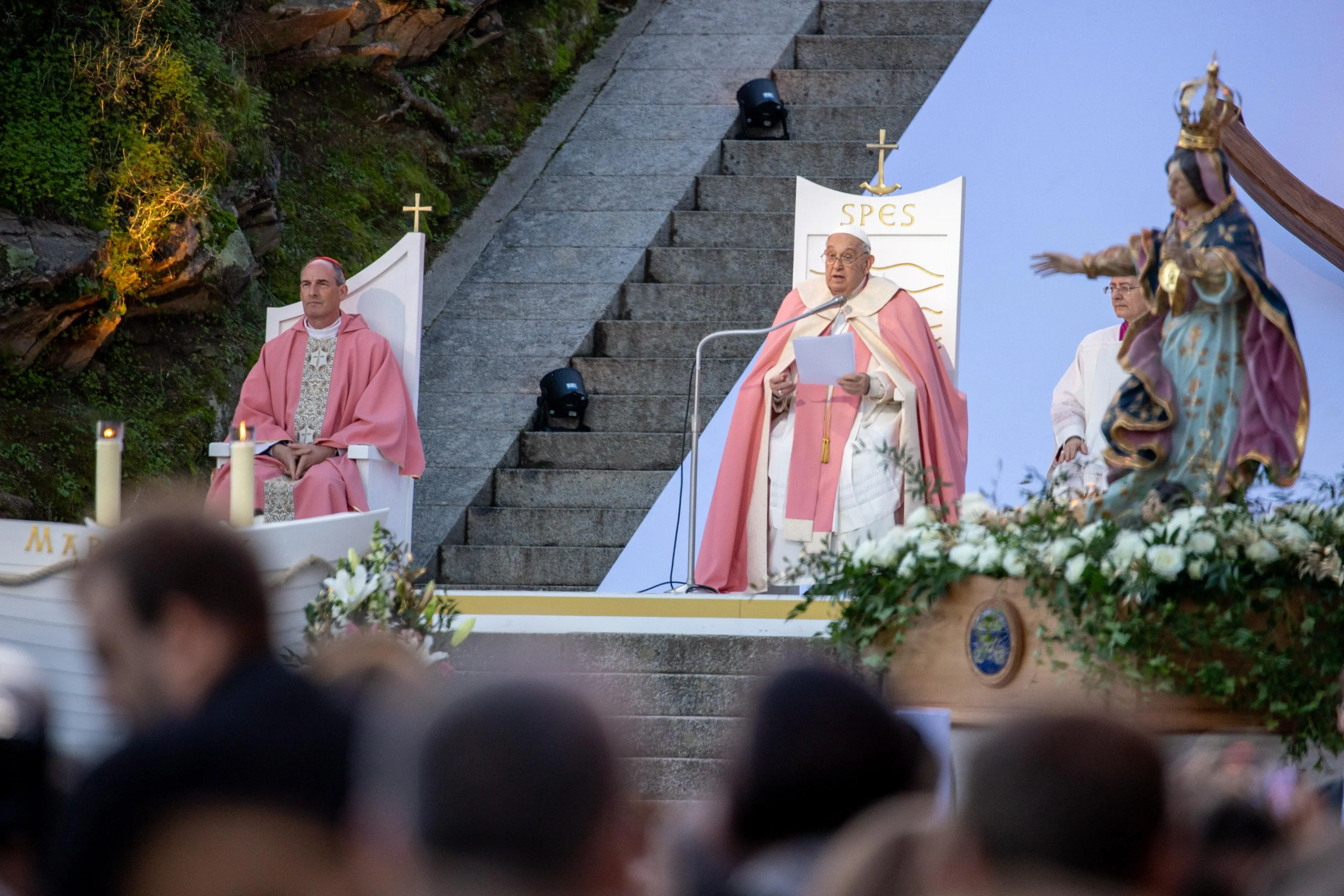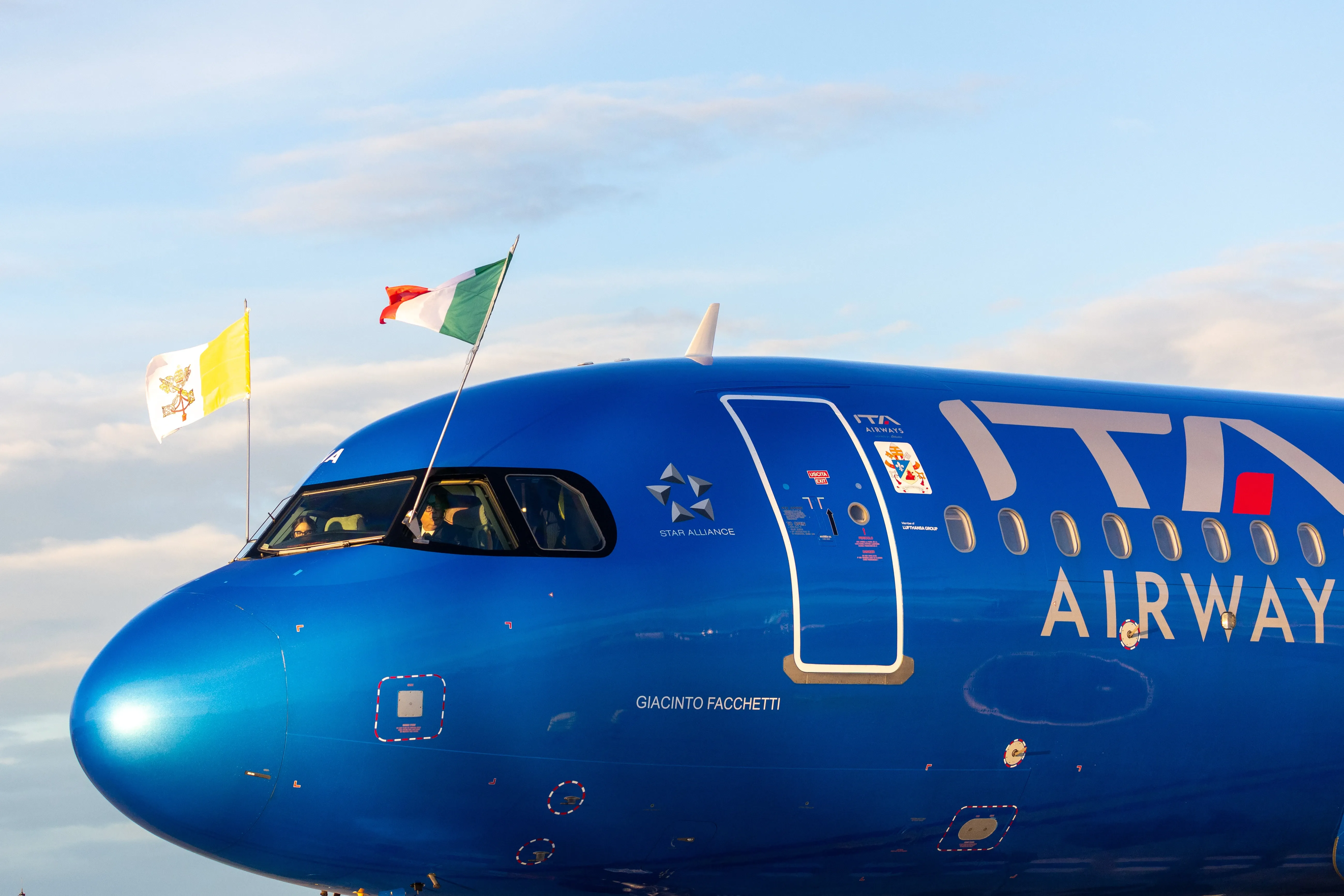Traditional Corsican hymns featured throughout Pope Francis’ visit, especially at his Mass with an estimated 7,000 Catholics at Place d’Austerlitz, a park built as a memorial to Emperor Napoleon Bonaparte, who was born in Ajaccio. Authorities estimate another 8,000 people were following the Mass on jumbo screens around the city.
In his homily for the Third Sunday of Advent, Pope Francis said too much time thinking about ourselves and our own needs is why “we lose the spirit of joy.”
Distress, disappointment, and sadness are widespread spiritual ills, he noted, especially where consumerism is prominent.
“If we live only for ourselves, we will never find happiness,” the pope said, pointing to the recitation of the rosary and the spiritual and corporal works of mercy of the confraternities as an example of how to cultivate faith.
The Mass in a mix of French and Corsican took place as the sun set over Ajaccio, ending by candlelight with purple skies behind the hills bordering the port city.
“May the Gospel of Jesus Christ help you to have hearts open to the world: your traditions are a richness to be cherished and cultivated, but never in order to isolate yourselves, indeed they are always for encounter and sharing,” Pope Francis said in his closing message of thanks to the community.
Pope Francis is the first pope to visit Corsica, which is situated west of the mainland of Italy and north of the Italian island of Sardinia, the nearest land mass.
According to the latest Vatican statistics, the Diocese of Ajaccio, the Mediterranean island’s only diocese, has nearly 344,000 inhabitants, around 85% of whom are Catholic.
Approximately 400 people, many of them members of confraternities, were in the auditorium hall for Pope Francis’ first meeting of the day, the closing speech of a conference on popular piety in the Mediterranean region.
While extolling the French system of “läicité” and the “constructive citizenship” of Christians, Pope Francis underlined that “faith may not be reduced to a private affair, restricted to the sanctuary of the individual’s conscience.”











